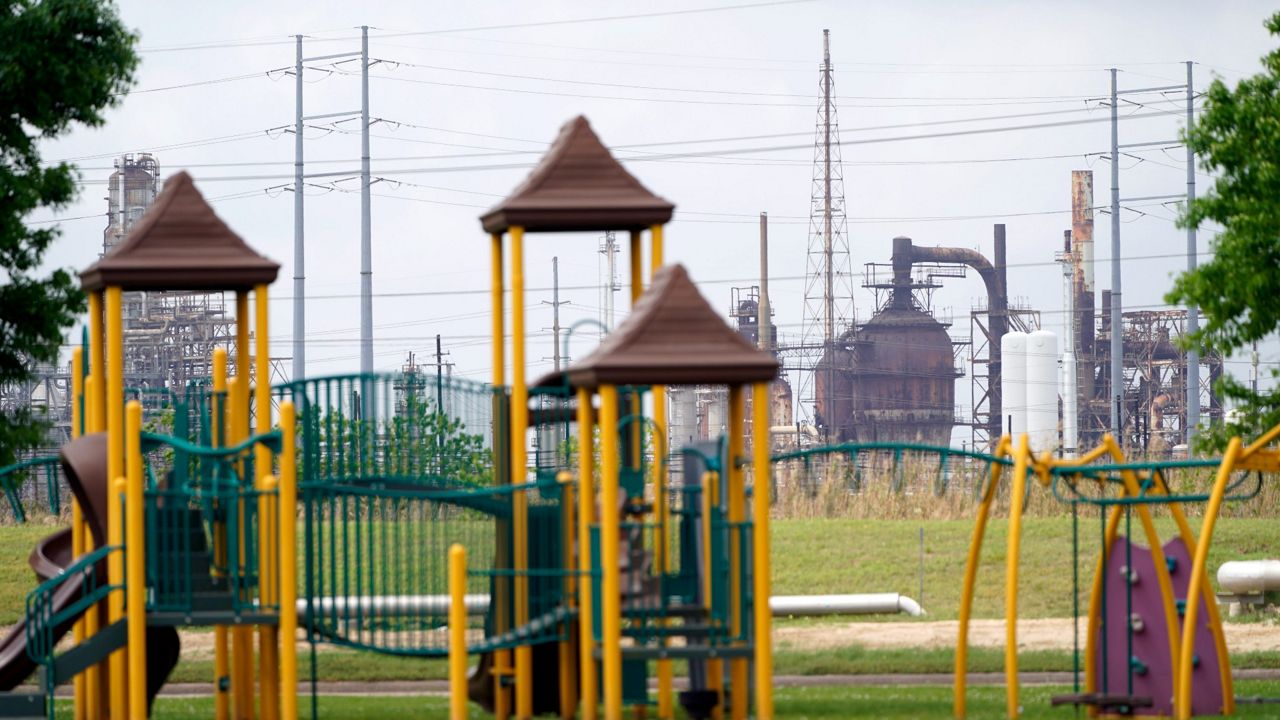There are five measures on the Nov. 2 ballot that voters will be asked to weigh in on in New York.
Capital Tonight spoke with various advocates and lawmakers for and against each of the proposals to get a sense of what’s at stake. Here, we examine the second question.
Ballot Question #2: The Right to Clean Air, Clean Water, and a Healthful Environment
The proposed amendment to Article 1 of the New York Constitution would establish the right of each person to clean air and water and a healthful environment. Shall the proposed amendment be approved?
Where the first question on the ballot is a multi-part, complicated concoction, the second question appears to be refreshingly straight forward.
At least at first glance.
It asks New Yorkers if the right to a clean environment should be enshrined in the state’s constitution.
Good government groups that Capital Tonight spoke with either have no opinion on this issue, or are pushing for a “yes” vote, as are environmental organizations.
“This is a wonderful opportunity for New York voters this fall to give themselves this right,” said Peter Iwanowicz, executive director of Environmental Advocates NY. “If a majority of voters vote yes, this immediately gets added to the constitution. We don’t have to wait for another act of the Legislature or the governor. It’s a very empowering moment for New Yorkers.”
- Your guide to New York's 2021 ballot questions: #1 — amending the state's redistricting process
- Your guide to New York's 2021 ballot questions: #3 — amending voter registration timeline
- Your guide to New York's 2021 ballot questions: #4 — authorizing no-excuse absentee ballot voting
- Your guide to New York's 2021 ballot questions: #5 — increasing the jurisdiction of NYC Civil Court
There have been several concerns raised by Republicans and business organizations about question #2. The first issue is that the question’s simplicity leaves it open to interpretation by the courts.
“The devil is in the details,” state Assembly Minority Leader William Barclay commented, wryly noting the amendment’s lack of detail.
“Aren’t we all for clean air and clean water?” state GOP chairman Nick Langworthy asked rhetorically. “This is an unnecessary change to our constitution and it strikes me that this is boondoggle for trial lawyers.”
Both the New York State Business Council and the National Federation of Independent Business are asking voters to vote “no” on question #2 because of the liability issue, as well as what they see as the duplicative nature of the question’s language.
“It’s very unclear to us what this proposed constitutional amendment would achieve that’s not already achieved or achievable under the New York state constitution, New York state statutes, federal statutes, state regulations or federal regulations,” the Business Council’s Ken Pokalsky stated.
Pokalsky also expressed his view that the question is simply bad policy.
He pointed to how New York City’s ozone levels have yet to reach the federal ozone standard.
“If I live in a non-attainment area for a federal criteria pollutant, what does this constitutional right to a clean environment do? Does it mean the state cannot add any pollution source in New York City?”
EANY’s Iwanowicz isn’t buying Pokalsky’s argument.
“Most New Yorkers are stunned when they learn that they don’t already have the legal right to clean air and water. For them, it explains why we often have air that is still too dirty to breathe, and communities find their tap water is unsafe to drink,” Iwanowicz said. “The only ones with any reason to oppose a right to clean air and water are those who make money poisoning our water and air.”
Municipalities, which are also potential stakeholders, have yet to weigh in on ballot question #2.
According to Peter Baynes of the New York Conference of Mayors, "the jury is out." The New York State Association of Counties had no comment on the issue.
According to a March 9, 2021 “environmental alert” sent by Nixon Peabody to local governments, there are several other states with similar environmental rights enshrined in their state constitutions, including Illinois, Pennsylvania, Hawaii, Montana, Massachusetts and Rhode Island.
The difference, the analysis states, is that New York’s proposed amendment gives “great flexibility to the courts in New York to interpret and apply.”
EANY’s Iwanowicz explained that this so-called “Green Amendment” doesn’t discuss lawsuits between individuals or individuals suing corporations.
“It’s all about better government decision-making. Hoosick Falls, bomb trains in the south end of Albany, how many different times can we ask ‘why did government allow this to happen?’” Iwanowicz said. “So now government, when this amendment gets added to our constitution, government will have to screen all their decision-making, whether you’re a local town board, a county legislature, a state legislature, or the administration for the state. You’ll have to now start to weigh your decisions against whether they would violate somebody’s right to breathe clean air and drink clean water.”
